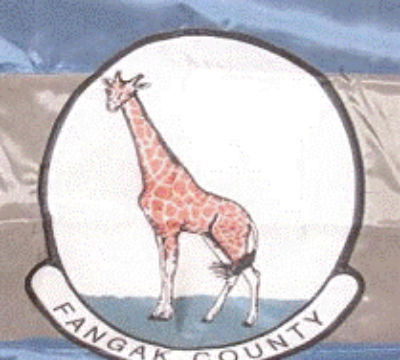 By Bol Tut
By Bol Tut
November 7, 2014 (SSNA) — Greater Fangak is a home to Padang Dinka of Pigi County and three sub-ethnic groups [clans] of Nuer tribe, namely; the Thiang Nuer, Gawaar Nuer and Lak Nuer. With Padang Dinka in the North-east, Lak Nuer in the North-west, Thiang Nuer in the Centre-western part and Gawaar Nuer in the Southern part of the Greater. Contextually, Greater Fangak derived from British old Districts system introduced before, the Coordination Council for Southern States [CCSS/GoSS] could divide it into the contemporary three different counties based on decentralization policy. Hence, the Pigi, Ayod and Fangak Counties were all once under One County called “Fangak County” which now becomes different constituencies but these constituencies still have spirit of togetherness as one people. These four sub-ethnic groups named above have been living side-by-side ever since and are strongly united through many shared social histories, borders, languages, cultural values and bonds of intermarriage. They also share basic needs, accommodations in time of need etc. For instance, when the GoSS-late George Ahtor war had happened in 2010-2011, the displaced citizens there were warmly welcomed and harbored by the people of the two sisterly counties, in Ayod, Fanagk North and Fangak South of Gawaar Nuer, Lak Nuer and Thiang Nuer respectively.
So, it is worth noting that the whole fragmentation of dividing the district into number of different counties was an administrative division, developmental one and not people’s division, as may be erroneously conceived by any or an ill-informed outsider. Unwaveringly, despite the recent imposed deep ethnic and divisive enmity started in Juba last year which did involve mass killing, Jonglei state majority ethnic group neither turned against the minority opposite community in Greater Fangak in particular and the state in general nor reversely. This was/is a patriotic, harmonious determination and an exemplary spirit of a peaceful co-existence life enriches by a geographic proximity, a cohesive society can do. As previously stated, the people of Greater Fangak almost always share interests and they are also living (or will continue to live) in the same world—area unlike those people who started unnecessary ethnic cleansing in Juba. It is morally wrong for minority group nearby to indulged, as they did, in one way or another especially the northern neighbors—in form of the so-called Chollo Defense Force of Johnson Ulony. This was evidently ascertained that Ulony’s tribe men have visible hands in an incident which took place in Tabuong on 3/11, 2014. Where number of civilians was indiscriminately got killed, mostly elderly, children and women; with a whole sub-village set ablaze and the culprits went away with killed people possessions.
The same thing also allegedly repeated yesterday, Wednesday 5/ Nov, 2014 at the other adjacent village. This issue (or any other likely one) shouldn’t be given a deaf ear again and cannot be consider anymore as “Konyokonyo talk”. But can such scenario strengthen peaceful co-existence among the proximate societies? I don’t think so. Because any an emulated step taken by anybody, either from near here or there will certainly have a devastating effect at the end of the day especially on the future well-beings of these proximate communities— in Jonglei state or Greater Upper Nile as a whole. This is plain and simple!
Therefore, in my view the onus to keep a spirit of maintaining peaceful co-existence is on everybody, particularly the youths, elders, educated and intellectuals from Greater Upper Nile. Peace building, not only at the level of Greater Fangak terrain alone but even beyond, was our paramount objective and priority. Alas it had to be interrupt by the prophets of dooms who opted for one ethnic cleansing in the heart of national capital for an obscure reason which rapidly spread to Greater Upper Nile region. Now though, we still strongly believe that, as soon as this imposed chaos which cracked the nascent nation exactly at the seam comes to an end that very prime objective shall be our starting point. God, sometimes, may be required first to instruct peace. Thus, it would be too absurd to try to initiate by now or imposed peace on the grassroots, a peace that won’t succeeded; be it at the state or national level. So we would want to congratulate the people of Greater Fangak for having reserved (as we do encourage them to distant) themselves from war and violent conflicts ignited by the people of different part of the world—country. Just in time, we would also want to advise an indulged people from neighboring lands to better learn from Naath or else prepare to harvest their financially-motivated involvements results. And work, instead, to help bring about peace and changes in South Sudan, just as the true Nationalists are doing.
Practically, however, as I see it Jonglei state grassroots peace conference in particular and South Sudan peace conference in its general outlook won’t be achieved by now, unless the needed changes to these partial situations are first prevailed. Moreover, all South Sudanese people from different works of life are now struggling as [to be] part and parcel of National Resistance Society— which badly striving for permanent changes.
So the peaceful co-existence among the Padang Dinka, Lak Nuer, Gawaar Nuer , Thiang Nuer of Greater Fangak and other South Sudanese people including the northern neighbors should be encouraged. Primarily by the minority themselves and strive even harder to the realization of an English wise saying that goes “discretion is the better part of valour” for them as a best way to avoid future regrettable discontent at the end of the day.
The author, Bol Tut, is a Thinag Nuer Youth Association’s Secretary for Information & Public Relations.

